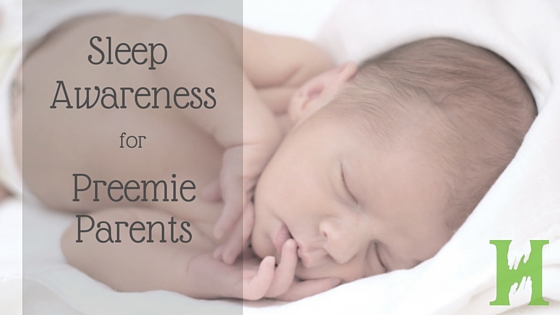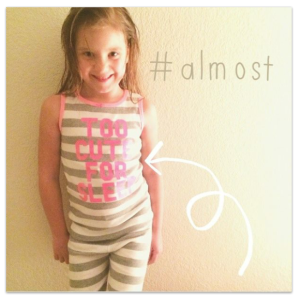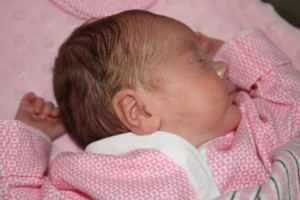March is Sleep Awareness Month! For more information on preemies and sleep, visit our sleep archives.

Trusting Your Baby Without Monitoring
It’s a huge relief to finally have your baby home from the NICU, but there can be anxiety leaving the dedicated staff and reliable monitors behind. If you are arriving home without equipment, it can be extremely frightening to allow your baby to sleep without standing there staring right at him/her. Our first night home, I decided that I would just never sleep again. Period. Eventually my body gave out and after a few nights of trying, I realized that my baby was doing just fine without me. For the record, the NICU follows specific standards set by the American Academy of Pediatrics (AAP) to ensure that your baby is capable of sleeping/breathing consistently before they are discharged.
Positioning Your Baby for Sleep
When we were discharged, the NICU staff mentioned the importance of having a minimal, stark, sleeping area. The days of fluffy, ornate crib
bedding are long gone. In fact, the Swedish never have provided much more than a cardboard box for their babies, according to last year’s Washington Post feature.
The National Institute of Child Health and Human Development says your baby should be placed in a safety-approved crib, on a firm mattress without pillows, blankets, bumpers, or toys. Dressed in a one-piece sleeper, your baby should be placed on his/her back, with nothing covering their face or head. You can place your baby’s crib near your bed, but you should not sleep with them on a couch, bed, or chair. Be sure to ask your pediatrician for safe sleeping guidelines as this blog post is not intended to replace directives from a medical professional.
Setting Expectations for Sleep
Having set an alarm to pump breast milk every two hours while my daughter was in the NICU, I didn’t have any expectations for enjoying more sleep after she was discharged. But I also had no idea what to expect.

Kate, age 6, wearing her “Too Cute for Sleep” pajamas, was discharged in 2007 after 59 days in the NICU
The AAP says “Your preterm baby will not sleep through the night for many months. Unlike a term baby, who might sleep a full 6 to 8 hours at night by four months of age, your baby may not accomplish this task until 6 to 8 months or later.”
I read that preemies may sleep for as many as 22 hours a day, but only for about an hour at a time, requiring frequent feedings to fill their extra-small tummies. Unlike full-term babies, preemies are rarely fully awake. They are often in a state of drowsiness, which is one of the reasons they’re known for being tricky to feed. It’s common for preemies to have a sleep cycle consisting of about an hour of sleep followed by about 20 minutes of drowsy awareness.
After I learned to trust my daughter to sleep/breathe without me staring at her, and because of the frequent feedings, I laid her down for daytime sleep in a mobile bassinet. This way, she slept in a safe environment while allowing me to keep her with me as I did various tasks throughout the house. It also allowed me to spend more time in the living room with her, where there was more space and more windows for natural light, rather than being cooped up in the nursery. I think it’s important to identify easy mental health adjustments like this wherever you can because your well-being is essential for your baby’s growth.
Happy “Sleep Awareness Month” and most of all, remember that you are not alone! A community of new and experienced moms is only a click away.


